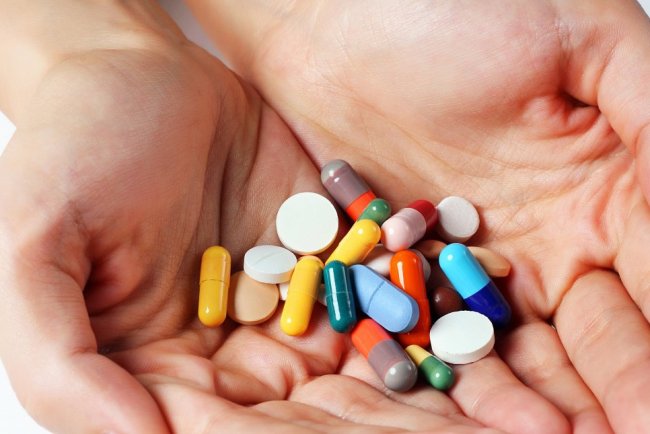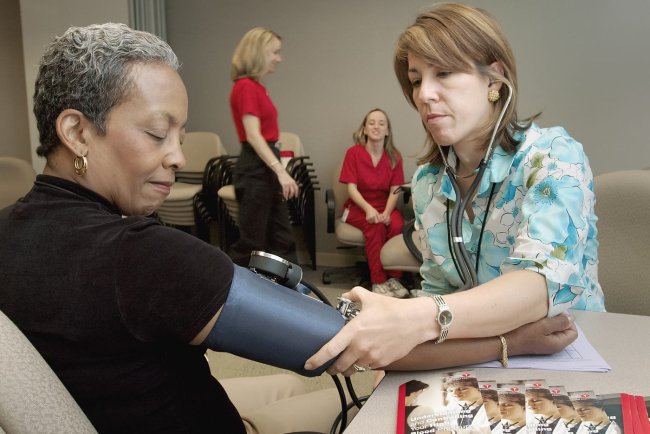Are you an athlete This is everything you need to know about your diet
There is no excuse anymore. We're just over a week into 2020 and excuses no longer work: it's time to train again, resume healthy habits, and return to healthy eating. If you want to purify your body and resume your diet to give your best in sports, keep reading.

There is no excuse anymore. We're just over a week into 2023 and excuses no longer work: it's time to train again, resume healthy habits, and return to healthy eating. If you want to purify your body and resume your diet to give your best in sports, keep reading.
Food provides the nutritional contributions necessary for the construction and reinforcement of the body's structure and ensures essential energy reserves. Thus, the absence or lack of certain nutrients can influence our development and our physical performance.
Athletes have specific nutritional needs and therefore must follow a diet that adapts both to the type of activity they perform and the level of performance at which they train. Furthermore, it must be a healthy, varied, and balanced menu that meets your energy demands. While it is true that professional athletes have the advice of a nutritionist who designs a personalized diet for them, some foods cannot be missing from the diet of anyone who practices sports, regardless of the level at which they are.
Depending on the type of activity carried out and the level of demand at which one works, each person will need a specific diet to cover specific nutritional needs. The nutritional contribution required by each individual varies not only depending on these factors but also depending on the objectives pursued: developing more muscle mass, losing fat, defining muscles, improving resistance...
What cannot be missing from any athlete's diet
The diet of any athlete – but also that of any person – must contain the three macronutrients: proteins, carbohydrates, and lipids.
- Proteins. Proteins promote muscle renewal and development.
- Carbohydrates. They are in pasta, rice, bread, potatoes or semolina, for example. Carbohydrates constitute the most important source of energy for our body and are essential to maintain the functional integrity of nervous tissues. If the reserves are not sufficient, our body extracts the energy it needs from the reserves of amino acids (proteins) and fatty acids (fats). This compensation process prevents muscle reconstruction and slows down the achievement of results in athletes.
- Lipids. Fats provide us with essential fatty acids. Like proteins, they constitute, to a lesser extent, the fuel for cells. We should not consume excess lipids because they are stored in our bodies in the form of fat. Those of plant origin are preferable.
In addition to a complete and balanced diet in macronutrients, athletes should make sure to include calcium in their diet, for example, in the form of dairy products, rich in calcium, protein, and vitamin D, essential for weight loss. The idea is to consume calcium in all meals, if possible, and that they are semi-skimmed or skimmed. Finally, the menu of any athlete must include vitamins, iron, and minerals.
Eat fruit and vegetables at all meals
Fruits and vegetables provide us with fiber, vitamins, minerals, and trace elements. In addition, they are antioxidants and prevent microtrauma. The sugar in fruits, fructose, helps store glycogen in the liver and also helps us hydrate our body and rebuild it during the recovery stage. Bananas, avocados, watermelons, and melons are four good examples of fruits that should not be missing from any athlete's diet.
Monitor iron intake
Iron facilitates the transport of oxygen in the bloodstream. Therefore, if athletes do not consume enough iron, they will suffer fatigue and their recovery periods will be longer. We can distinguish two types of iron: non-heme iron, present in vegetables and legumes in small quantities; and heme iron, present in meat and fish. Some vitamins, such as vitamin C, promote the assimilation of this mineral, accelerating the formation of red blood cells and preventing anemia.
Choose whole grains.
They are the basis of athletes' diets since they are an important source of energy and fiber. In addition, they help cleanse our body, purify it, and regulate its rhythm and functioning.
Eggs, are an important source of protein
We know that protein is important to keep muscles strong and help them grow. Although they should not be the basis of diets, we must make sure we eat enough of them. The egg is a very versatile and easy food to consume, and it is also delicious. Although you should not abuse it, it is recommended that you include it in your menu.
Meat and fish
The most beneficial type of meat for athletes is white meat, such as turkey, chicken, or rabbit, which has a lower fat content. Although meat is taken as a reference food when it comes to consuming protein, it is not the only nor the most important source. Fish is also a fundamental source of protein. As with meat, the best fish is white: whiting, cod, skate, or monkfish, for example.
Complement your diet with nuts
Walnuts, hazelnuts, and almonds are very beneficial sources of Omega 3 and 6 fatty acids and energy. In addition, nuts are very satiating, which makes them an exceptional food to complete your breakfast.
How to design a diet for an athlete?
Contrary to what some believe, athletes' diets should not be based on protein, a macronutrient that feeds muscle. The truth is that, as is the case with any person's diet, whether or not they dedicate themselves to sports, the basis of the diet should be carbohydrates (fruits, vegetables, legumes, and cereals), which should make up between 50% and 60%. % of our menu. As for the rest, the ideal is that between 25% and 30% should be made up of fats, and the remaining 10% or 15% should be made up of proteins.
But how to design the diet based on the stage the athlete is in?
- Corrected diet during periods of strength training. During this period, the consumption of amino acids should be reinforced and there should be no prolonged fasting periods. In addition, protein intake should be sufficient to thicken the muscle fiber. Meals should be eaten at least three hours before training.
- Competition diet. During this stage, the stomach should arrive at the test in its half-filled state. Thus, the meal immediately before should be rich in easily digestible carbohydrates and eaten about three hours before. In addition, foods with a high glycemic index (GI) should not be consumed. During the competition, only athletes participating in long-term events will be able to eat.
- Recovery diet. In the diet, after tests and competitions, the objective will be to compensate for the reserves that have been spent. Even so, you should not eat food until about two hours have passed.
Hydration
During sports, you lose a lot of water, so you must compensate for this loss of fluids and minerals by drinking throughout the day and during effort, without waiting to feel thirsty. Thirst is a symptom of dehydration that has negative repercussions on results. Furthermore, during periods of intense effort, the kidneys generate more waste that our body needs to eliminate through water intake.
You should consume two liters of water a day. This way you will ensure that your organs stay hydrated and fully functional so that your internal processes develop normally. Additionally, this will help you avoid fatigue, which could reduce your performance.
As for isotonic drinks, it is preferable to leave them for occasions when training is very intense. On other occasions, it is best to consume water. In addition, you can also consume it in juices, infusions, soups, and broths, and remember to avoid sugary and carbonated drinks.
The best breakfast for athletes
You may have heard that breakfast is the most important meal. The truth is that they all are, but what does happen with breakfast, which is the first meal after a fast of approximately 8 hours, is that it must be complete and sufficient to provide us with energy during the day and make up for the deficiencies of so many hours without eating.
Thus, the idea contains fruit, whole and slowly absorbed carbohydrates (whole bread or cereals), and dairy products. If the sport you practice demands a lot of muscle, it is recommended that you include a lot of lean protein, such as turkey or eggs.
What's Your Reaction?




















